1. Symptomatic Tx of MS
1.1. Anti-inflammatory steroids
1.1.1. Methylprednisolone, dexamethasone, prednisone, betamethasone, prednisolone
1.1.2. MOA
1.1.2.1. Close damaged BBB
1.1.2.2. Reduce inflammation in the CNS
1.2. Anti-depressants
1.2.1. Both SSRIs and tricyclics
1.2.2. Use
1.2.2.1. Depression associated w/ MS
1.3. Amitriptyline, Carbamazepine, & phenytoin
1.3.1. Tx for neuralgia
1.4. Imipramine
1.4.1. Use
1.4.1.1. Urinary incontinence
1.4.2. MOA
1.4.2.1. Strong antimuscarinic effect
1.5. Anti-spasmodics (diazepam, clonazepam, dantrolene, etc)
1.6. Amantadine - tremors/fatigue
1.7. Meclizine - vertigo
1.8. Oxybutanin - urinary incontinence
2. Amyotrophic Lateral Sclerosis (ALS)
2.1. Riluzole
2.1.1. The only drug apprvoed for specific Tx of ALS
2.1.2. MOA
2.1.2.1. Voltage-gated Na-channel blocker
2.1.2.1.1. Inhibits glutamate release
2.1.2.2. Slows progression of Dz
2.1.3. PK
2.1.3.1. Highly plasma bound
2.1.4. SE
2.1.4.1. asthenia, dizziness, vertigo, NVD
2.1.4.2. Circumoral perathesias
2.1.4.3. SGPT elevation
2.1.4.3.1. Monitor liver chemistry!
2.1.4.3.2. Tx-limiting
2.2. Non-specific Tx
2.2.1. Baclofen: Tx spacicity
2.2.2. Gabapentin: slows decline in M strength
3. Alzheimer's Dz
3.1. Specific Tx
3.1.1. Acetylcholinesterase inhibitors
3.1.1.1. Donepezil
3.1.1.2. Galantamine
3.1.1.3. Tacrine
3.1.1.4. Revistigmine
3.1.1.5. MOA
3.1.1.5.1. Pts w/ AD have decreased cholinergic activity in cortex and hippocampus
3.1.1.5.2. But doesn't really work
3.1.2. Memantine
3.1.2.1. MOA
3.1.2.1.1. "use-dependent" NMDA receptor antagonist
3.1.2.2. Use
3.1.2.2.1. Slows progression of Dz
3.1.2.2.2. Often used as adjunct to cholinesterase inhibitors
3.1.2.2.3. May be used in other neurodegenerative Dzes (ALS, PD, epilepsy)
3.1.2.3. AE
3.1.2.3.1. Generally well tolerated
3.1.2.3.2. Dizziness, headache, constipation, confusion
3.2. Non-specific Tx
3.2.1. SSRIs & atypical antipsychotics
3.2.1.1. Typical antipsychotics increases risk of stroke!
3.2.2. Gingko
3.2.2.1. Modest improvement in memory
3.2.3. Caprylidene
3.2.3.1. MOA
3.2.3.1.1. AD may be d/t impaired glucose metab. So we're giving them ketones instead
3.2.3.1.2. Experimental Tx
3.2.3.2. PK
3.2.3.2.1. "medical food" that is metabolized to ketones. Provide energy to brain
4. MS
4.1. Interferons
4.1.1. Interferone beta-1b
4.1.1.1. Betaseron
4.1.1.2. Extavia
4.1.2. Interferon beta-1a
4.1.2.1. Avonex
4.1.2.2. Rebif
4.1.3. MOA
4.1.3.1. Immunomodulatory actions
4.1.3.2. Decreases Ag presentation in the CNS
4.1.3.2.1. Limits immune attack on myelin
4.1.4. PK
4.1.4.1. Major difference btwn the two interferon types is kinetic
4.1.4.1.1. All are proteins, so much be given via injection
4.1.4.2. B & R are given alternate days SQ injection
4.1.4.3. Avonex is weekly IM injection
4.1.5. SE
4.1.5.1. Flu-like Sx
4.1.5.2. Ab formation (can limit drug effectiveness
4.1.5.3. Depression
4.2. Glatiramer
4.2.1. MOA
4.2.1.1. Synthetic compound that resembles a component of myelin
4.2.1.1.1. Protects myelin by acting as a "decoy," attracting immune cells away from myelin
4.2.2. Use
4.2.2.1. Relapsing-remitting MS
4.2.2.1.1. Decreases rate of relapse
4.2.3. Admin
4.2.3.1. Given SQ, QID
4.2.4. SE
4.2.4.1. Generally well tolerated
4.2.4.2. Flushing, chest tightness, SOB
4.2.4.2.1. Feels like an MI, but it's not!
4.2.4.3. Joint and muscle pain/stiffness
4.3. Mitoxantrone
4.3.1. MOA
4.3.1.1. chemotherapeutic agent
4.3.1.2. suppresses immune attack on myelin
4.3.2. SE
4.3.2.1. N, bladder infxn, mouth sores, amenorrhea
4.3.2.2. Cumulative effect on cardiac conduction
4.3.2.2.1. Only use for 2-3 years
4.4. Natalizumab
4.4.1. MOA
4.4.1.1. Recombinant MAB
4.4.1.2. Binds adhesion molecule on activated lympho- and monocytes
4.4.1.2.1. Blocks adhesion and prevents leukocyte entry into CNS
4.4.2. SE
4.4.2.1. Minor
4.4.2.1.1. Headache, fatigue
4.4.2.2. Allergic rxns and Ab formation
4.4.2.3. The Big Bad one: progressive multifocal leukoencephalopathy (PML)
4.4.2.3.1. Caused by JC virus
4.5. Fingolimod
4.5.1. MOA
4.5.1.1. Inhibits migration of T cells out of lymph nodes
4.5.2. Use
4.5.2.1. Prevents relapse and progression of Sx
4.5.3. PK
4.5.3.1. Slow but complete absorption
4.5.3.2. Long 1/2 life (4-9 days)
4.5.3.3. Highly protein bound
4.5.3.4. 1st oral specific Tx
4.5.4. SE
4.5.4.1. Bradycardia
4.5.4.2. Increased infxns
